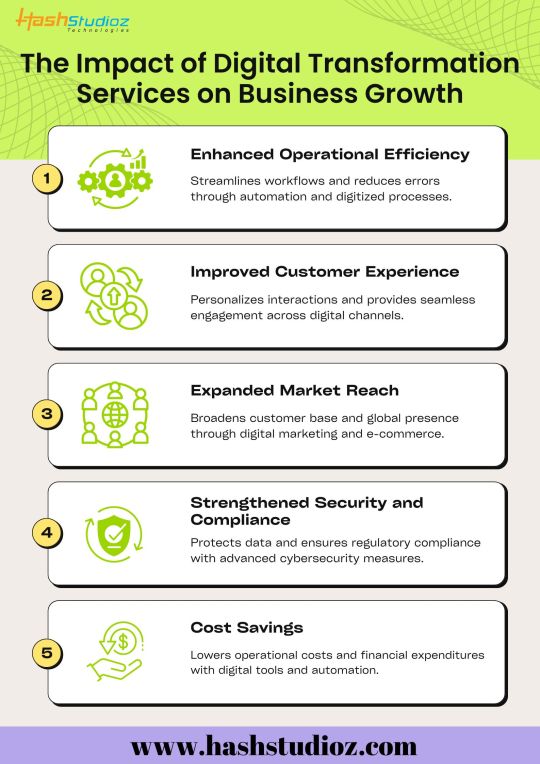#digital transformation in india
Text
The Role of Technology in Facilitating Business Expansion

In today's interconnected world, technology plays a pivotal role in facilitating business expansion, particularly in dynamic markets like India. As businesses seek to capitalize on India's vast consumer base, growing economy, and evolving business landscape, leveraging technology becomes essential for driving growth, innovation, and competitive advantage. In this article, we'll explore the significance of technology in enabling business expansion in India and how businesses can harness the power of technology to fuel their growth strategies.
Digital Transformation and Market Reach
1. E-commerce Platforms: With the proliferation of e-commerce platforms in India, businesses can expand their reach and access a wider audience beyond geographical boundaries. Establishing an online presence through platforms like Amazon, Flipkart, and Myntra allows businesses to showcase their products or services to millions of Indian consumers, driving sales and brand visibility.
1. Market Reach and Accessibility:
- E-commerce platforms provide businesses with an extensive reach and accessibility to Indian consumers across the country. With millions of users accessing these platforms daily, businesses can tap into a vast and diverse consumer base, regardless of their physical location or size.
- By listing their products or services on popular e-commerce platforms such as Amazon, Flipkart, and Myntra, businesses gain visibility among Indian consumers who are actively searching for products or services online. This visibility significantly enhances the market reach of businesses, allowing them to target customers in urban, semi-urban, and rural areas across India.
2. Expanded Customer Base:
- E-commerce platforms enable businesses to expand their customer base beyond traditional brick-and-mortar stores. With the increasing adoption of smartphones and internet connectivity in India, more consumers are turning to online shopping for convenience, variety, and competitive pricing.
- Businesses can attract new customers and retain existing ones by offering a wide range of products or services on e-commerce platforms, catering to diverse preferences and tastes. This expanded customer base not only drives sales growth but also enhances brand recognition and loyalty among Indian consumers.
3. Ease of Entry and Low Barrier to Entry:
- E-commerce platforms provide businesses with a relatively low barrier to entry into the Indian market compared to setting up physical retail outlets. Businesses can create seller accounts and start selling their products or services on e-commerce platforms with minimal upfront investment and operational overheads.
- This ease of entry allows businesses of all sizes, including startups and small enterprises, to enter the Indian market and compete effectively against established players. By leveraging e-commerce platforms, businesses can overcome traditional barriers to entry and gain access to a vast pool of Indian consumers without the need for significant capital investment.
4. Marketing and Promotion Opportunities:
- E-commerce platforms offer various marketing and promotion opportunities for businesses to showcase their products or services and attract customers. Businesses can leverage features such as sponsored listings, discounts, deals, and promotions to enhance their visibility and drive sales on e-commerce platforms.
- Additionally, e-commerce platforms provide tools and analytics to track customer behavior, monitor sales performance, and optimize marketing campaigns. By analyzing data and insights provided by e-commerce platforms, businesses can refine their marketing strategies, target specific customer segments, and maximize their return on investment (ROI) in the Indian market.
5. Logistical Support and Fulfillment Services:
- E-commerce platforms often offer logistical support and fulfillment services to businesses, including warehousing, order processing, packaging, and delivery. By outsourcing these operational functions to e-commerce platforms, businesses can focus on core activities such as product development, marketing, and customer service.
- This streamlined logistics and fulfillment process ensure timely delivery of orders, enhances customer satisfaction, and builds trust in the brand. Businesses can leverage the infrastructure and expertise of e-commerce platforms to fulfill orders efficiently and effectively, even in remote or underserved areas of India.
2. Mobile Apps: The widespread adoption of smartphones has transformed consumer behavior in India, making mobile apps a powerful tool for business expansion. Developing mobile apps enables businesses to engage directly with customers, offer personalized experiences, and facilitate seamless transactions, driving customer loyalty and retention.
Here's a detailed explanation of how mobile apps contribute to business expansion:
1. Direct Customer Engagement:
- Mobile apps provide businesses with a direct and personalized channel to engage with customers. By offering a mobile app, businesses can stay connected with users 24/7, sending push notifications, updates, and personalized offers directly to their smartphones. This direct engagement fosters brand loyalty, encourages repeat purchases, and enhances the overall customer experience.
2. Convenience and Accessibility:
- Mobile apps offer unparalleled convenience and accessibility to customers, allowing them to browse products or services, place orders, and make payments with just a few taps on their smartphones. This convenience factor is especially crucial in India, where mobile penetration is high, and consumers are increasingly relying on their smartphones for everyday tasks, including shopping and transactions.
3. Personalized Experiences:
- Mobile apps enable businesses to deliver personalized experiences tailored to individual user preferences and behaviors. By leveraging data analytics and user insights, businesses can customize app content, product recommendations, and promotional offers based on user demographics, purchase history, and browsing patterns.
4. Enhanced Brand Visibility:
- Having a mobile app increases brand visibility and presence on customers' devices, serving as a constant reminder of the business and its offerings. Mobile apps often feature prominently on users' home screens, providing businesses with valuable real estate to showcase their brand logo, colors, and messaging. This visibility helps businesses stay top-of-mind among Indian consumers and stand out in a crowded marketplace.
5. Seamless Transactions:
- Mobile apps streamline the purchasing process, allowing customers to complete transactions seamlessly within the app. Integrated payment gateways, digital wallets, and secure checkout processes enable smooth and hassle-free transactions, reducing friction and abandonment rates. This seamless shopping experience encourages impulse purchases and boosts sales for businesses operating in India's competitive e-commerce landscape.
6. Offline Access and Performance:
- Mobile apps offer offline access to certain features and content, allowing users to access essential functionalities even in areas with poor or limited internet connectivity. This offline capability is particularly beneficial in India, where internet access can be sporadic in certain regions. By providing offline access, businesses ensure that users can engage with their app and make purchases regardless of their location or network connectivity.
7. Brand Loyalty and Retention:
- Mobile apps play a crucial role in building brand loyalty and fostering customer retention in India. Businesses can incentivize app usage through loyalty programs, rewards, and exclusive offers available only to app users. By providing value-added services, personalized recommendations, and timely notifications, businesses can create a loyal customer base that keeps coming back to the app for their needs.
Market Insights and Consumer Engagement
1. Big Data Analytics: Harnessing the power of big data analytics allows businesses to gain valuable insights into consumer behavior, market trends, and competitive dynamics. By analyzing data from various sources such as social media, website analytics, and customer feedback, businesses can make informed decisions, optimize marketing strategies, and identify new growth opportunities in the Indian market.
2. CRM Systems: Implementing customer relationship management (CRM) systems enables businesses to streamline sales processes, track customer interactions, and deliver personalized experiences. By centralizing customer data and communication channels, businesses can enhance customer engagement, nurture leads, and drive repeat business in India's competitive business environment.
Operational Efficiency and Scalability
1. Cloud Computing: Adopting cloud computing solutions allows businesses to enhance operational efficiency, reduce infrastructure costs, and scale their operations rapidly. Cloud-based services such as Software-as-a-Service (SaaS), Infrastructure-as-a-Service (IaaS), and Platform-as-a-Service (PaaS) offer flexibility and scalability, enabling businesses to adapt to changing market conditions and customer demands in India.
2. Enterprise Resource Planning (ERP) Systems: Implementing ERP systems streamlines business processes, integrates disparate systems, and improves collaboration across departments. By standardizing workflows, automating tasks, and providing real-time visibility into operations, ERP systems empower businesses to manage their expansion initiatives effectively and drive operational excellence in India's competitive business landscape.
Innovation and Competitive Advantage
1. R&D and Product Development: Investing in research and development (R&D) and product innovation allows businesses to stay ahead of the competition and meet the evolving needs of Indian consumers. By leveraging emerging technologies such as artificial intelligence (AI), machine learning (ML), and Internet of Things (IoT), businesses can develop innovative solutions, enhance product offerings, and differentiate themselves in the Indian market.
2. Digital Marketing and Branding: Leveraging digital marketing channels such as social media, search engine optimization (SEO), and content marketing enables businesses to build brand awareness, engage with target audiences, and drive customer acquisition in India. By crafting compelling digital marketing campaigns and leveraging data-driven insights, businesses can amplify their brand presence and gain a competitive edge in India's crowded marketplace.
As businesses embark on their expansion journey in India, embracing technology becomes imperative for driving growth, innovation, and success. By leveraging digital transformation initiatives, gaining market insights, enhancing operational efficiency, and fostering innovation, businesses can unlock new opportunities, expand their market reach, and thrive in India's dynamic business landscape. With technology as a strategic enabler, businesses can navigate challenges, capitalize on emerging trends, and achieve sustainable growth in one of the world's most promising markets for business expansion.
This post was originally published on: Foxnangel
#business expansion#expanding your business#business expansion in india#digital transformation#e commerce in india#technology in business#digital transformation in india#business growth#market expansion#e commerce growth in india#invest in india#foxnangel
1 note
·
View note
Text

/ smokescreen
#not a huge fan of my digital plain inks but i couldnt find my india ink and pens so#starscream#inktober#transformers#fanart
28 notes
·
View notes
Text
Unlocking Success: Digital Transformation Strategies for Modern Businesses
In an age where digital technology is reshaping industries and customer expectations, businesses are continually challenged to adapt or risk falling behind. This phenomenon has given birth to a buzzword in corporate boardrooms and IT Companies alike: Digital Transformation.

Digital Transformation isn't just about adopting the latest technology trends; it's a holistic approach to fundamentally altering how a business operates and delivers value to its customers. To succeed in this ever-evolving landscape, organizations must develop effective strategies. In this blog, we'll explore the essence of Digital Transformation and provide actionable strategies for your business.
Understanding Digital Transformation
Digital Transformation is the integration of digital technology into all areas of a business, fundamentally changing how it operates and delivers value to customers. It's not a one-size-fits-all process; it varies depending on an organization's unique goals, industry, and starting point. Here are some key elements to understand:
1. Customer-Centric Approach: At the heart of Digital Transformation is a focus on meeting customer needs and expectations more effectively. This involves leveraging technology to enhance customer experiences and gain insights into their preferences.
2. Data-Driven Decision Making: Collecting and analyzing data is critical for making informed decisions. Digital Transformation often involves implementing robust data analytics and business intelligence tools.
3. Process Optimization: Streamlining and automating processes can significantly increase efficiency and reduce costs. This often includes the adoption of workflow automation tools and customer relationship management software (CRM).
4. Cultural Shift: Changing the organization's culture to be more agile, innovative, and open to technology-driven changes is vital. This requires strong leadership and employee buy-in.
Strategies for Digital Transformation Success
1. Define Clear Objectives: Start by setting specific, measurable, and achievable goals for your Digital Transformation. Understand why you are embarking on this journey and what outcomes you hope to achieve.
2. Customer-Centricity: Understand your customers' needs and preferences through data analysis and feedback. Tailor your products, services, and interactions accordingly.
3. Data-Driven Insights: Invest in robust data analytics tools to gain actionable insights from your data. Use these insights to make informed decisions and create personalized customer experiences.
4. Agile Methodologies: Adopt agile project management methodologies to increase flexibility and adaptability in your organization. This allows you to respond quickly to changing market conditions and customer demands.
5. Innovation Culture: Encourage a culture of innovation by fostering collaboration and experimentation. Provide employees with the tools and resources to innovate and stay ahead of the competition.
6. Cybersecurity and Compliance: Ensure that your Digital Transformation initiatives include robust cybersecurity measures and compliance with relevant regulations, protecting both your data and your customers' data.
7. Talent Development: Invest in training and upskilling your workforce to equip them with the skills needed for the digital age. This includes technology training, data literacy, and digital marketing skills.
8. Partnerships and Ecosystems: Collaborate with technology partners and participate in industry ecosystems to access expertise and stay current with the latest technological advancements.
9. Continuous Improvement: Digital Transformation is an ongoing process. Regularly assess your progress, gather feedback, and adjust your strategies to stay relevant and competitive.
10. Leadership Commitment: Finally, strong leadership commitment is essential. Leaders should champion the Digital Transformation journey and lead by example.
Digital Transformation is not just a trend; it's a necessity for businesses to thrive in the digital age. To succeed, organizations must embrace change, put the customer at the centre of their strategies, and leverage technology effectively. With a well-defined strategy and commitment to continuous improvement, your business can navigate the evolving landscape and unlock new opportunities for growth and innovation in the digital era.
2 notes
·
View notes
Text
#siddharth mehta bay capital#siddharth mehta#bay capital#siddharth#mehta#siddharthmehtabaycapital#baycapital#digitalization#digital transformation#digital india
3 notes
·
View notes
Text
Digitalization is the process of converting analog information into digital form. It involves using advanced technology to digitize information, automate processes, and improve efficiency. By converting data into digital format, organizations can store, manipulate, and analyze data more easily, quickly, and accurately.
#siddharth mehta il&fs#siddharth mehta bay capital#siddharth mehta#bay capital#digital india#digitalization#digital transformation
2 notes
·
View notes
Text
Enhance Efficiency and Flexibility with DIN Rail Mounted Terminal Blocks in India
Introduction:
In today's rapidly evolving industrial landscape, efficient and reliable electrical connections are crucial for ensuring smooth operations. DIN rail mounted terminal blocks have emerged as a preferred solution for creating secure and organized electrical connections in a wide range of applications. With their versatility, durability, and ease of installation, these terminal blocks have gained immense popularity among professionals in India. In this blog post, we will explore the benefits and applications of rail mounted terminal blocks and highlight their importance in the Indian industrial sector.

What are DIN Rail Mounted Terminal Blocks?
DIN rail mounted terminal blocks are electrical connectors that provide a convenient and standardized method for connecting and distributing power or signals in industrial control systems. These blocks are specifically designed to be mounted on DIN rails, which are widely used for organizing and securing electrical components in control panels, switchgear cabinets, and equipment enclosures.
Benefits of DIN Rail Mounted Terminal Blocks:
Space-saving and Modular Design: DIN rail mounted terminal blocks feature a compact design that allows for optimal use of available space. Their modular construction enables easy customization and expansion as per the specific requirements of an application, making them highly adaptable.
Secure and Reliable Connections: These terminal blocks ensure secure and reliable connections, thanks to their robust construction and advanced connection technologies. They provide a sturdy grip on wires and facilitate excellent contact, minimizing the risk of loose connections and electrical failures.
Easy Installation and Maintenance: With their tool-less and user-friendly design, DIN rail mounted terminal blocks simplify installation and maintenance procedures. The snap-on mounting feature of these blocks allows for quick and hassle-free assembly, reducing overall downtime during system installation or upgrades.
Enhanced Safety: Rail mounted terminal blocks adhere to stringent safety standards and offer features like finger-safe design, which prevents accidental contact with live components. This ensures the safety of both the equipment and the personnel working with them.
Applications of DIN Rail Mounted Terminal Blocks:
Industrial Automation: Rail mounted terminal blocks are extensively used in industrial automation systems, where they serve as a vital component for connecting sensors, actuators, motors, and other devices. These blocks provide a reliable interface for transmitting power and signals between various control elements.
Power Distribution: DIN rail mounted terminal blocks play a crucial role in power distribution systems, allowing for easy and organized connection of power supply lines to different equipment. They enable efficient energy management and facilitate the distribution of power to multiple devices within a control panel.
Building Automation: In building automation systems, DIN rail mounted terminal blocks provide a convenient solution for connecting various electrical components, such as lighting controls, HVAC systems, security systems, and more. Their modular design allows for easy integration and maintenance of these systems.
Rail Mounted Terminal Blocks in India:
The Indian industrial sector is witnessing significant growth, and the demand for reliable electrical connectivity solutions is higher than ever. Rail mounted terminal blocks have gained traction in India due to their versatility and ability to meet the diverse requirements of industries ranging from manufacturing to infrastructure development. Manufacturers and suppliers in India offer a wide range of DIN rail mounted terminal blocks, catering to different voltage and current ratings, wire sizes, and connection types.

Conclusion:
Rail mounted terminal blocks have revolutionized the electrical connectivity landscape in India, providing efficient, secure, and organized solutions for various industrial applications. Their space-saving design, ease of installation, and robust construction make them indispensable for creating reliable connections in control systems and power distribution networks. As the industrial sector continues to thrive in India, the importance of DIN rail mounted terminal blocks as a key component in electrical installations cannot be overstated. By embracing these advanced terminal blocks, Indian industries can enhance efficiency, reduce downtime, and ensure safe and reliable operations.
#Rail Mounted Terminal Blocks India#DIN Rail Mounted Terminal Blocks India#Power BusBar Terminal#Finger Safe Power Terminal blocks#Barrier Terminal Block Manufacturer in India#electrical wire termination technology#manufacturer#terminal block#DIN Rail Mounted Connectors#switchgear industry#solar product#PCB connectors#DIN rails channels#digital voltmeter#digital ammeter#power and signal#current transformer#railway#renewable energy#elmex#electrical company#electrical industry
2 notes
·
View notes
Text
The Digital Transformation of Schools
Introduction
In recent years, digital transformation has become a buzzword across all industries, including education. The world of education is evolving with technology, and schools are embracing digital transformation to stay relevant and competitive. This article will explore in the guidance of Best School in Indore what digital transformation is and the advantages of digitization for schools, along with how schools can make the switch to digital.
What is Digital Transformation?
Digital transformation refers to the integration of technology in all aspects of an organization to improve efficiency and productivity. In the context of education, digital transformation involves leveraging technology to enhance the teaching and learning process. This includes using digital tools and platforms for communication, collaboration, and assessment.
Advantages of Digitization for Schools
Digitization offers several advantages for schools. Firstly, it makes the learning process more engaging and interactive for students. Digital tools allow teachers to create more interactive lessons and give students the opportunity to learn at their own pace.
Secondly, digitization improves collaboration between teachers, students, and parents. Digital platforms such as learning management systems enable teachers to communicate with students and parents more easily and provide real-time updates on student progress.
Finally, digitization improves the administrative functions of schools. Digital systems for attendance, grading, and scheduling automate time-consuming tasks, freeing up teachers and administrators to focus on more important tasks.
Making the Switch to Digital
The switch to digital can be overwhelming for schools, but there are several steps they can take to make the transition smoother. Firstly, schools should conduct a thorough needs analysis to identify areas where digitization can improve efficiency and productivity.
Secondly, schools should provide training and support to teachers, students, and parents to ensure they are comfortable with the new tools and platforms.
Finally, schools should develop a comprehensive plan for implementing and maintaining digital tools and platforms. This includes identifying who will be responsible for managing and maintaining the systems and establishing protocols for troubleshooting and technical support.
Conclusion
The digital transformation of schools is a necessary step in ensuring they remain competitive and provide the best possible learning experience for students. Digitization offers several advantages, including improved engagement, collaboration, and administrative functions. While making the switch to digital can be challenging, schools can take several steps to ensure a smooth transition. For students who want to take advantage of the benefits of digitization, the best schools in Indore offer excellent digital resources and infrastructure to support their learning journey.
#Digital Transformation of Schools#Best Digital Transformation of Schools#Best Schools in Indore#List of CBSE schools in India
2 notes
·
View notes
Text
#Business Consulting Solutions#IT Services#digital transformation consulting#top consulting firms#software development company#india consulting#it company in usa#high tech industry
2 notes
·
View notes
Text
#digital transformation#siddharth mehta bay capital#bay capital#digital india#digitalization#tumbgir#tumblr#tumbral
2 notes
·
View notes
Text
What is Digital Transformation?

Trimasys is a leading IIoT solutions provider in India with expertise in end-to-end Industry 4.0 solutions. We're an awarded PTC Thing Worx partner and help foreword thinking businesses with their digital transformation requirements. Our teams have years of hands-on experience in system integration of leading technology platforms and solutions from Ignition, ABB, Honeywell, and Siemens.
Digital Transformation is changing the way the industry works. A close look at various machines, equipment, and control systems reveals a complex web of protocols, interfaces and standards followed by different machine manufacturers. This makes it very difficult to integrate OT systems into IT systems such as digitalization platforms and solutions. With over 20 years of Industrial Automation & Digitalisation experience, our team of experts is uniquely positioned to provide the most suitable solution to your integration problems. What’s more, we have partnerships with leading digitalization suppliers, including PTC, Siemens, and ePLAN, to name a few.
Visit for more information -
Website - https://www.trimasyscontrol.com/
4 notes
·
View notes
Photo

ConVista SAP Consultant is The SAP Experts to make it easy for software developers to work with SAP. It offers a variety of features, including a project management tool, an analysis and design tool, a testing tool, and a collaboration tool. It also allows developers to work with multiple SAP modules and applications at the same time.
#The SAP Experts#SAP Consultant Asia#The SAP Expert in Asia#The SAP consultant in Asia#Best SAP Consulting in Asia#SAP Consultant in Bangalore#SAP S4 for Insurance#SAP Multi Bank Connectivity#SAP for Insurance#SAP S/4 HANA Finance#Best SAP Consultant in India#Find SAP Partners in Bangalore#SAP Digital Transformations#SAP FICO Consultant in Bangalore#SAP ERP Consultant in Bangalore
2 notes
·
View notes
Text
Digital Marketing Agency in India: Transforming Businesses in the Digital Age
In an era where digital presence is essential for business success, digital marketing agencies in India have emerged as critical players in shaping how companies engage with their audiences. These agencies are driving business growth by providing innovative solutions to harness the potential of the internet, transforming traditional marketing approaches into impactful, data-driven digital strategies. This article explores the significance, services, and success stories of digital marketing agencies in India.
Why Digital Marketing Matters in India
India, with over 700 million internet users, represents one of the largest digital markets in the world. The penetration of smartphones and affordable data plans has revolutionized how people consume content, make purchases, and interact with brands. To tap into this vast, digitally active consumer base, businesses need to adopt robust online marketing strategies.
Digital marketing has proven to be far more efficient than traditional marketing. It allows businesses to target their specific audience, measure results in real time, and scale up quickly, all at a lower cost. Whether it’s for small startups or established enterprises, the ability to connect with consumers on platforms they frequent — such as social media, search engines, and email — is critical to sustaining growth and staying competitive.
Key Services Offered by Digital Marketing Agencies in India
Digital marketing agencies in India offer a full suite of services tailored to meet the diverse needs of businesses. These include:
Search Engine Optimization (SEO):SEO is the backbone of online visibility. By optimizing websites to rank higher on search engine results pages, agencies help businesses drive organic traffic and increase brand awareness.
Pay-Per-Click (PPC) Advertising:PPC campaigns allow businesses to appear at the top of search engine results or on targeted social media platforms. Digital marketing agencies in India help design cost-effective PPC campaigns that provide immediate visibility and measurable results.
Social Media Marketing (SMM):Platforms like Facebook, Instagram, Twitter, and LinkedIn are pivotal for engaging with customers. Indian digital agencies create tailored social media strategies to build brand communities, enhance customer loyalty, and generate leads.
Content Marketing:Content is at the core of any digital marketing strategy. Indian agencies focus on creating valuable, engaging content — such as blogs, videos, and infographics — that resonate with audiences, establish authority, and improve conversion rates.
Email Marketing:Email remains a powerful tool for customer engagement. Digital marketing agencies craft personalized email campaigns aimed at nurturing leads and boosting customer retention.
Web Development and Design:A business's website is often the first touchpoint for potential customers. Agencies ensure that websites are well-designed, user-friendly, and optimized for both search engines and conversions.
Data Analytics and Reporting:The ability to track campaign performance in real-time is a major advantage of digital marketing. Agencies provide businesses with detailed insights into their digital efforts, helping refine strategies and maximize ROI.
Why Indian Digital Marketing Agencies Stand Out
India has become a hub for digital marketing services due to several factors that give its agencies a competitive edge:
Cost-Effectiveness:Compared to their counterparts in Western markets, Indian digital marketing agencies offer high-quality services at a fraction of the cost. This makes them an attractive option for global companies looking to outsource their marketing efforts.
Expertise in Technology and Innovation:India’s tech-savvy workforce is highly skilled in emerging digital tools and technologies. Agencies here are quick to adopt the latest trends in artificial intelligence, data analytics, and automation, providing cutting-edge solutions to their clients.
Global Reach and Experience:Indian digital marketing agencies are not limited to the domestic market. They serve clients from around the world, helping businesses expand their global reach while incorporating international best practices into their campaigns.
Success Stories of Digital Marketing Agencies in India
Webenza:Based in Bangalore, Webenza is known for providing result-driven digital strategies. Their work with clients like Myntra and Aditya Birla Group showcases their expertise in executing impactful SEO, social media marketing, and content marketing campaigns.
WatConsult:WatConsult, a leading digital agency, has helped brands like Tata, Godrej, and Nikon amplify their digital presence through innovative social media and influencer marketing campaigns.
Social Beat:With offices in major cities, Social Beat has worked with brands like Cavin’s, Bosch, and Hotstar. They specialize in providing integrated digital marketing solutions, including video content, performance marketing, and digital transformation strategies.
Mirum India:Mirum India has carved a niche by helping global brands like Pfizer, Danone, and Citibank with comprehensive digital marketing and branding strategies. Their focus on delivering tailored solutions has made them a preferred partner for companies looking to make a mark in the digital space.
The Future of Digital Marketing in India
The digital marketing landscape in India is evolving rapidly, and agencies are constantly adapting to keep up with new trends and technologies. As artificial intelligence, machine learning, voice search, and personalized marketing become more prevalent, Indian digital marketing agencies are well-positioned to lead this evolution.
The surge in e-commerce, fintech, online education, and entertainment sectors in India will also continue to drive the demand for digital marketing services. Furthermore, as more businesses prioritize data-driven marketing, the focus on analytics and customer insights will become even more significant.
Conclusion
India’s digital marketing agencies are helping businesses, both locally and internationally, unlock new growth opportunities in the digital space. Their ability to offer cost-effective, innovative, and customized marketing solutions makes them indispensable partners for businesses of all sizes. As digital transformation continues to reshape the business landscape, these agencies will play a crucial role in guiding companies toward long-term success.
0 notes
Text
Leading Creative Agency in India – Innovate with Impact
Looking for a creative agency in India to elevate your brand? From innovative design to strategic storytelling, we craft experiences that resonate with your audience. Discover how our creative solutions can transform your brand at Technians.
#creative agency in India#social media agency in noida#Web Designing Company in India#digital transformation solutions
0 notes
Text
Expert IT Staffing Services in India | Radiant
Radiant provides expert IT staffing services in India, helping businesses find skilled professionals to support digital transformation and long-term growth.
#IT staffing services India#Radiant IT manpower#expert IT recruitment India#digital transformation staffing#hire IT professionals
0 notes
Text

Ready to grow your business? 🚀 Discover how Digital Transformation services are reshaping industries and driving innovation. Empower your company with the tools needed for success! 🌐
#BusinessGrowth#Innovation#Digital Transformation Services#Digital business transformation services#Digital transformation services and solutions#Digital Business Transformation#Digital transformation company#Digital transformation consulting#digital transformation solutions#enterprise digital transformation services#digital transformation solution#digital transformation services Company#digital transformation services india#digital transformation consulting provider#digital transformation consultants#digital transformation consulting firm India
0 notes
Text
Leading Digital Transformation Consulting Services | Transform Your Business

Looking for digital transformation consulting services? Our expert consultants provide tailored solutions to drive innovation and efficiency. Hire a digital transformation consultant today to elevate your business with cutting-edge strategies and technologies.
#digital transformation consulting services#digital transformation consulting#digital transformation consulting services and solutions#digital transformation consulting services in india#hire digital transformation consultant#hire business transformation consultants#digital transformation consulting agency#digital transformation service providers#digital transformation consultancy services#digital transformation consultancy#digital transformation services#digital transformation consulting company#digital transformation consultants#digital transformation service provider#digital transformation consulting firm#digital transformation consultant#digital transformation solutions
0 notes